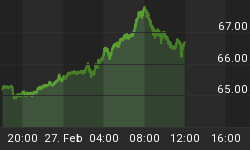U.S. President Joe Biden has signed an executive order calling for an official examination of the risks and benefits of cryptocurrencies in order to address the lack of a framework for crypto development, taking the first step towards what many analysts have predicted would be the year that the crypto market would meet its regulatory maker.
But those forecasts may be a bit off. Based on the executive order, the final regulatory destination here appears to be at the end of a very long road.
Bitcoin was last trading at $42,300, around 9% higher on Tuesday, following the announcement, with other cryptocurrencies also trading higher. By Wednesday, it still had barely blinked:
The executive order calls on federal agencies to take a unified approach to the regulation and oversight of digital assets. Federal agencies are required to study the crypto industry and recommend appropriate oversight, which could include “regulation, economic innovation and national security”.
“The rise in digital assets creates an opportunity to reinforce American leadership in the global financial system and at the technological frontier, but also has substantial implications for consumer protection, financial stability, national security and climate risk,” the White House said in a statement.
The order also directs the Federal Reserve to research and potentially develop its own digital dollar, digital currency.
"My Administration places the highest urgency on research and development efforts into the potential design and deployment options of a U.S. Central Bank Digital Currency (CBDC)," the executive order reads.
In its fact sheet, the White House said that 16% of Americans have invested in, traded, or used cryptocurrencies. Currently, digital assets are now valued at roughly $1.85 trillion.
Over the course of the past two years, bitcoin and other cryptocurrencies have witnessed steady value increases thanks to growing acceptance by Wall Street and some of the world’s biggest and most recognizable institutions and companies, including Visa, Square, PayPal, Tesla and mainstream hedge funds.
In the meantime, crypto might be a safe haven of sorts, but no one’s entirely sure what it’s a safe haven against … the Federal Reserve, geopolitical developments or a weak U.S. dollar.
Crypto markets came under pressure recently after it emerged that the Federal Reserve would likely raise interest rates several times this year. Also, many prominent investors have divested from cryptocurrencies as they await more regulatory clarity from U.S. agencies.
Back in December 2020, the outgoing Trump administration said it was preparing a few measures that would strip anonymity from cryptocurrency. However, the Biden administration has declared a freeze on all agency rule-making, pending a review by the new administration.
Since then, there have been several announcements and calls by federal agencies to regulate the market, including from Intelligence Committee senators, the U.S. Financial Crimes Enforcement Network (FinCEN) and Treasury secretary Janet Yellen.
Following Biden’s executive order, Secretary Yellen said the effort would “promote a fairer, more inclusive, and more efficient financial system…while countering illicit finance and preventing risks to financial stability and national security”.
The crypto markets were shocked mid-last year after China started cracking down on the space, curbing bitcoin mining due to concerns of excess speculation and warning financial institutions against offering crypto services.
Over the past year, China has been relentless, waging an ongoing crackdown on bitcoin mining, culminating in a full ban in September that forced nearly 100,000-strong crypto mining ‘workforce’ to either give it up or move elsewhere.
Before the ban, at least 65% of global miners working on the bitcoin blockchain were based in China.
In January, the government of the South East Europe country Kosovo also announced it is banning crypto mining indefinitely to deal with an energy crisis, high prices and blackouts.
Also in January, the Russian central bank announced that it will seek to ban all cryptocurrency trading and mining.
The bank said that cryptocurrency value “is defined primarily by speculative demand for future growth, which creates bubbles,” adding they “also have aspects of financial pyramids, because their price growth is largely supported by demand from new entrants to the market.”
In early February, media reported that the Russian government and bank are working on a draft law, to be made public in coming week, that will define crypto as an “analogue of currencies” and not digital financial assets. However, there have been no updates on the draft law since then, most likely because the priorities shifted since then with the invasion of Ukraine.
















